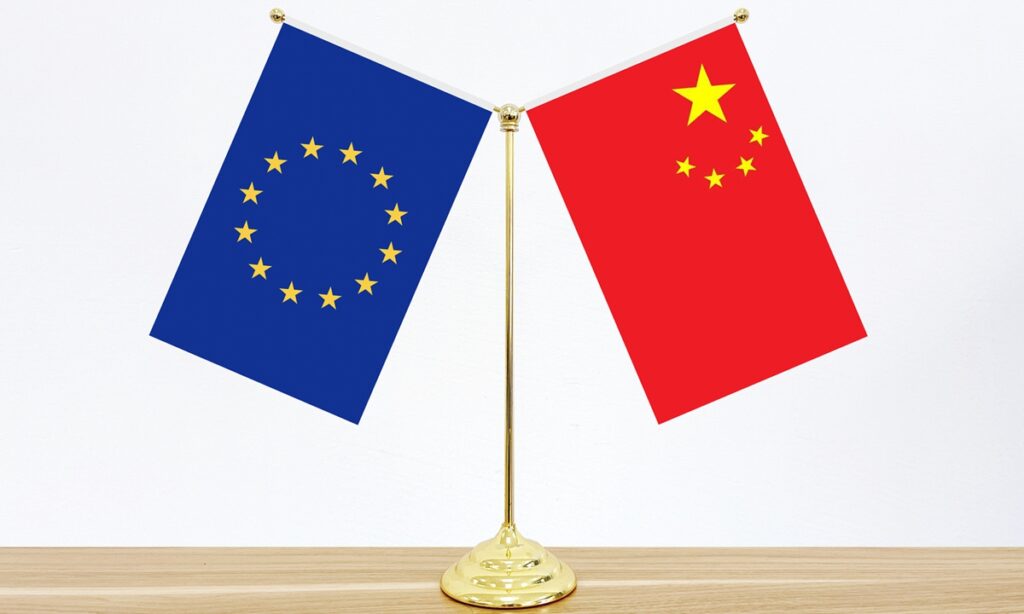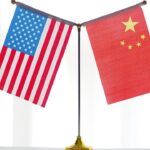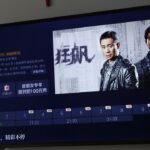When seeking to allay EU concerns about subsidies under the US Inflation Reduction Act (IRA) in a meeting with EU Executive Vice President Valdis Dombrovskis, US Trade Representative Katherine Tai also stressed the importance of US-EU cooperation in responding to economic coercion and other non-market practices, according to a statement issued on Friday by Tai’s office.
While the statement didn’t mention China, some US media outlets, like VOA Chinese, interpreted that Tai was referring to “China’s economic coercion.”
Yet, calling white black cannot divert EU’s attention for the IRA, nor can it hide the fact that there is currently more serious economic coercion and non-market practices in Trans-Atlantic trade relations than ever. And it is already crystal clear who is trying to exploit and profit from the EU’s misfortune.
The protectionist IRA is a case in point. It is not hard to foresee how the US offer of huge subsidies for electric vehicles (EV) manufactured in the country will affect the European manufacturing sector and future investment in the EV sector.
The fact that months of EU complaints have done nothing to change the US decision on the issue suggests that the chances of the US making concessions on the IRA are slim to none.
Moreover, US intervention seems to be a common occurrence in Europe’s economic issues, which has actually reached a very serious level and has caused growing risks of economic loss. European countries need to be vigilant toward the risks and take it seriously.
For instance, after putting pressure on the Netherlands, the US has reached a deal with the European country over restrictions on export of semiconductor manufacturing technology to China, according to media reports.
While the EU economy is now facing challenges linked to a range of factors, there is no denying that the EU still holds a pivotal position in the global economy. But if the EU wants to become an important pole of the world economy, the key is how to really develop and strengthen its own economic status in the global arena. To achieve such a goal, efforts must be made to address a series of obstacles and problems, such as how to get rid of or reduce US interference and how to handle the economic and trade relations with China.
Now, with the US’ protectionist industrial policy and energy shortage caused by the Russia-Ukraine conflict, the EU has become increasingly aware of the importance of restructuring and consolidating its supply and industrial chains. But this doesn’t mean that European countries need to break supply and industrial chains with China, which is tantamount to economic suicide.
Likewise, China also faces such problems as how to position itself in the global supply chain under the US “decoupling” push that is disrupting the industrial chains. Under such circumstances, China and Europe still have many common areas where they can cooperate.
It is true that the impact of the US pursuit of its global strategy will continue to have a significant impact in the future to come. But what’s important for China and the EU is to strengthen cooperation to avoid falling into the US-led strategic trap and becoming a tool serving US interests.
There may still be some differences between China and the EU, but their direction should be the same, that is, to get rid of external interference by seeking more pragmatic cooperation that is more in line with the economic and social development needs of the both sides.
In this sense, China-EU relations, including their economic and trade ties, need to follow an open and pragmatic approach to be independent of US global strategy and its China containment.
(Global Times)




